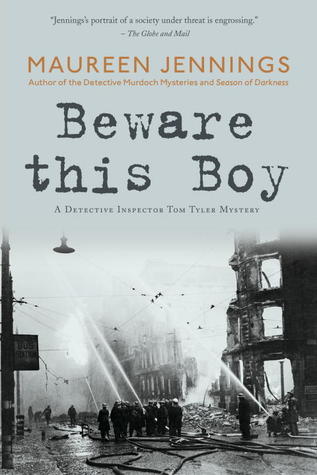
The Blurb (from Goodreads):
November, 1940. Tom Tyler, Detective Inspector of the small Shropshire town of Whitchurch, is a troubled man. The preceding summer had been a dark one for Britain, and even darker for Tom's own family and personal life. So he jumps at the opportunity to help out in the nearby city of Birmingham, where an explosion in a munitions factory has killed or badly injured several of the young women who have taken on dangerous work in support of the war effort.
At first, it seems more than likely the explosion was an accident, and Tom has only been called in because the forces are stretched thin. But as he talks to the employees of the factory, inner divisions -- between the owner and his employees, between unionists and workers who fear communist infiltration -- begin to appear. Put that together with an AWOL young soldier who unwittingly puts all those he loves at risk and a charming American documentary filmmaker who may be much more than he seems, and you have a page-turning novel that bears all the hallmarks of Maureen Jennings' extraordinary talent: a multi-faceted mystery, vivid characters, snappy dialogue, and a pitch-perfect sense of the era of the Blitz, when the English were pushed to their limits and responded with a courage and resilience that still inspires
My Thoughts:
I had never heard of Maureen Jennings before I picked up this book, but apparently she is best known for a series of historical mysteries that have been televised as ‘the Murdoch Mysteries’. I was interested in this book because it was compared to ‘Foyle’s War’, which I love, and because generally anything set during the Second World War is of interest to me. It’s an unusual crime novel. Yes, there is murder, and sabotage, and spies, and skulduggery, but the action is slow and deliberate, and much of the emphasis is on the interior lives of its troubled characters. The action all takes place in in rain, in fog, in bomb shelters, and in munitions’ factories. The atmosphere is gloomy and laden with dread. This is historical crime at its most serious and deliberate, and most effective in its evocation of a terrible time in British history.
You might also like to read my review of Code Name Verity here:

